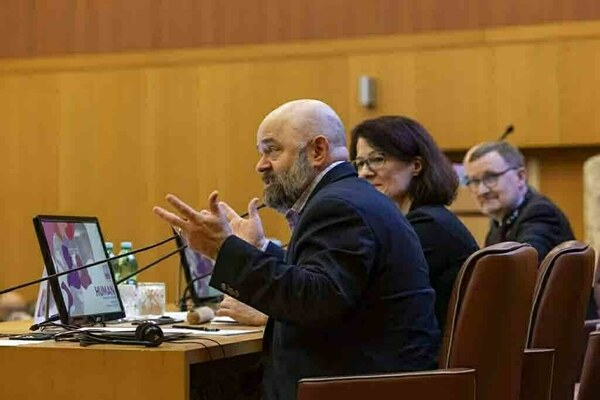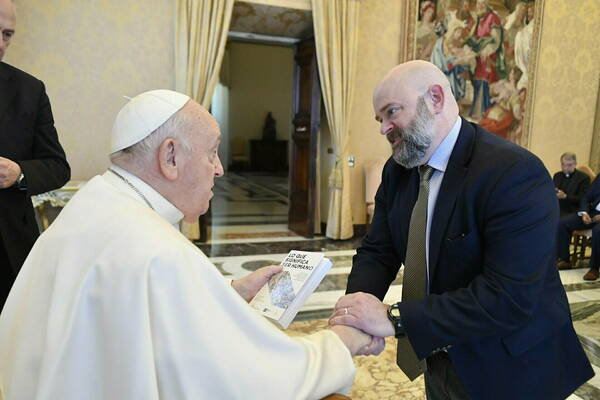
O. Carter Snead, Charles E. Rice Professor of Law, was in Vatican City in February for the annual plenary assembly of the Pontifical Academy for Life. The Pontifical Academy for Life consists of experts chosen by the Pope to focus on promoting and defending the Church's life ethic by addressing critical issues at the intersection of biomedical sciences and ethics. This year the assembly focused on the theme "Human: Meanings and Challenges," addressing the importance of human interconnectedness and its role in finding meaning.

Snead presented to the assembly on "Brain Implants, Neuroethics, and the Anthropology of Embodiment.” In his presentation, he responded to Dr. Olaf Blanke's previous presentation on neurological therapies for diseases. Drawing upon the arguments in his book, “What It Means to be Human” (Harvard U. Press 2020), he proposed an "anthropology of embodiment" as a foundation for bioethics, instead of the prevalent "expressive individualism" that, among other things, separates mind and body in defining the self. He explained and emphasized the importance of acknowledging the inexorable human vulnerability and mutual dependence of living embodied beings in time, advocating for bioethics grounded in care, love, and friendship. Applying this to neuroethics, Snead recommended prioritizing access to care, using natural human functioning as a baseline for health, and using this baseline to distinguish between therapy and enhancement. Specifically speaking about memory modification, he argued that while memory is an important aspect of human identity, the person still persists even when the memory is annihilated. All humans - including the profoundly cognitively disabled - can participate in flourishing through the giving and receiving of unconditional love. He further noted that understanding and respecting our embodied nature (a “psychophysical unity,” as philosopher Hans Jonas put it) can form the basis for creating ethical guidelines and policies that reflect human values in areas like medicine, bioethics, and related policies.

Pope Francis appointed Snead to the Pontifical Academy for Life in 2016, and he has been a member since then. During a private audience, Snead presented Pope Francis with a Spanish-translated copy of his book, “What It Means to be Human: The Case for the Body in Public Bioethics,” which was named by the Wall Street Journal as one of the “Ten Best Books of 2020.”
Snead is one of the world’s leading experts on public bioethics – the governance of science, medicine, and biotechnology in the name of ethical goods. His research and teaching explores issues relating to neuroethics, enhancement, human embryo research, assisted reproduction, abortion, and end-of-life decision-making. He will conclude a 12-year tenure as the director of the University of Notre Dame's de Nicola Center for Ethics & Culture this year.
Originally published by at law.nd.edu on March 01, 2024.